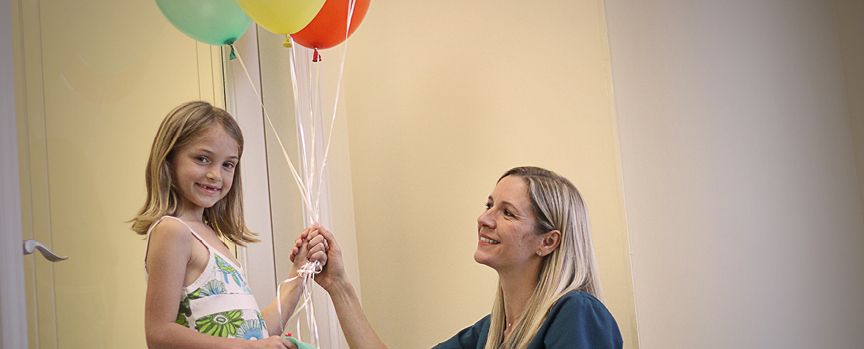When a child has a dental trauma, first and foremost their overall safety is top priority. If the patient experiences dizziness, nausea, and/or loss of consciousness, or the patient has any possible broken bones or open wounds,proceed to the nearest emergency room immediately.
Gently brush and floss around the sore tooth, if tolerable. For pain relief, you may alternate an over the counter dose of acetaminophen and motrin, every 3 hours as needed. In the event of a facial swelling, please contact the office immediately.
Ice can be applied to any bruised areas. For bleeding, apply firm (but gentle) pressure with sterile gauze or a clean cloth. If the bleeding does not stop with pressure or continues after 15 minutes, go to an emergency room.
For a broken baby tooth, alternate an over the counter does of acetaminophen and motrin every 3 hours for pain. Stick to a soft, room temperature diet. Extreme hot or cold can make the tooth more sensitive. Contact your dentist as soon as possible. Most treatment for broke baby teeth can be accomplished during normal business hours, without altering the overall prognosis of the teeth.
For a broken permanent tooth, contact your dentist immediately. Traumatized permanent teeth may require time dependent treatment. Only your dentist can make that determination and provide you with further instruction. Our after hours contact information is available 24 hours a day, by calling the office number.
If any tooth fragments are recovered, please store and transport them in cold milk, so your dentist may determine if they may be used to restore the broken tooth.
For a knocked out baby tooth, recover the tooth if possible. This will help the dentist to determine if there are any remaining pieces in the mouth. It is never recommended to re-implant a baby tooth, as the risk of damaging the developing permanent tooth is too great. Have your child bite down tightly on a washcloth or damp paper towel to help stop the bleeding. Call your dentist immediately for further instruction.
For a knocked out permanent tooth, recover the tooth and any fragments and place them in cold milk immediately. If your child has no other signs of head trauma or bodily injury as previously mentioned, contact your dentist. It is recommended that you re-implant the tooth yourself, if possible.
After gently rinsing the tooth of any visible dirt or debris, reimplant the tooth in the socket and have the child hold the tooth in place by biting down on a washcloth or damp paper towel. If you are unable to do so, then keep the tooth in cold milk while transporting the patient to the dental office.
Do not place the tooth in water or any other beverage, as cells may be damaged and this may diminish the chance for tooth survival. If the tooth is dry for too long, or not reimplanted within an hour of the accident, the prognosis becomes very poor for saving the tooth.
Seek immediate medical treatment from the nearest emergency room, or oral surgeon when possible.
